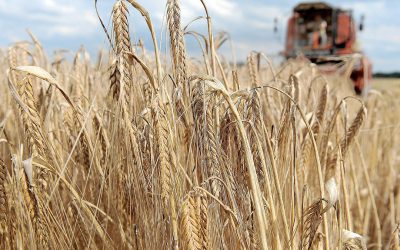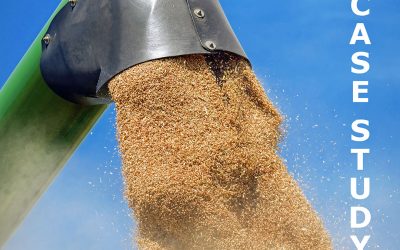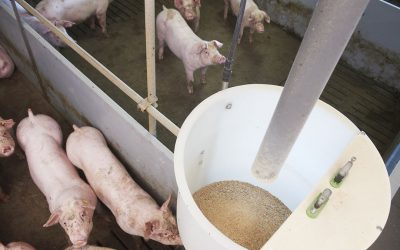D-day for the disrupters in food and agri

This week, the World Economic Forum took place in Davos, Switzerland. A broad range of topics were discussed. But what do world leaders think of agriculture? One thing is clear: it needs to be transformed and speed of applying new technologies has to be stepped up.
On the website of the forum it states: “The 48th World Economic Forum Annual Meeting aims to rededicate leaders from all walks of life to developing a shared narrative to improve the state of the world. The programme, initiatives and projects of the meeting are focused on Creating a Shared Future in a Fractured World.”
Innovation to drive speed and scale
By reading these sentences a few times, I almost get the feeling that the world has changed completely in the last few years. What does a fractured world mean exactly? I can think of certain things that relate to this: civil wars and polarisation of political affiliations. But do we also live in a fractured food producing world? Frankly, this sounds pretty serious and a little bit disturbing. The report: ‘Innovation with a purpose: The role of technology innovation in accelerating food systems transformation’ might bring some answers to this question. The report was launched this week at the forum. Speed and scale is needed to make sure the farming methods of today can meet the demands of the future.
Putting data to the potential
An interesting component of the report is that the authors identified the ‘transformative 12’, 12 innovations with a lot of potential in food systems. 3 different sets of underlying technologies are needed to drive these rapid innovations. These are: digital building blocks (such as big data, internet of things and blockchain), new physical systems (such as autonomous vehicles, advanced robotics and nanotechnologies) and lastly, advances in sciences (such as next generation biotechnologies and genomics).
An interesting aspect about the ‘transformative 12’ is that the authors put actual numbers to it. In other words, how much money can be saved, how much methane can be reduced and how big is the production increase by applying a certain technological innovations? I think this is needed to put things into perspective. Only saying that value chains should be better and alternative proteins are needed doesn’t mean anything. We have to make it as specific as possible!

The numbers tell the tale
In the case of alternative proteins, the report says the following: Estimates suggest that if 10–15% of the global animal protein consumption were replaced with these alternative proteins by 2030, we could see CO2-equivalent emissions reduced by 550-950 megatons (which is the equivalent of 5-8% of total agricultural greenhouse gas emissions) and water use reduced by 225-400 billion cubic metres (which is the equivalent of 7-12% of total fresh water withdrawn from agriculture). Moreover, 250–400 million hectares of land would be spared (which is the equivalent of 5-10% of total land use for agriculture). Impressive to read and I guess when megatons and billions are mentioned, it is a good thing.
Another great example is gene editing for multi-trait seed improvements. Historically, there have been three ways to improve seeds: open pollination, hybridity and genetic modification. There is now a fourth: genome editing (or gene editing). Gene editing offers the opportunity for substantial improvements in yield, environmental and nutritional outcomes. If gene-edited seeds were adopted by 60-100 million farms by 2030, there could be 100-400 million tonnes more crops produced (which is the equivalent of 1-5% of the total agricultural production46) and 5-20 million fewer tonnes of production lost annually (which is the equivalent of 1-2% of total food losses). Farmers’ incomes would grow by $ 40-100 billion (which is the equivalent of 1-2% of the total agricultural production value) and nutrition would improve for 20-100 million people that are micronutrient deficient (which is the equivalent of 1-5% of total people in a state of malnutrition).
The right innovation ecosystem
The authors address that innovations can only thrive when the ‘innovation ecosystem’ is right. I agree. When there is no incentive, no lobby, no subsidies, no pressure from stakeholders, etc, innovations can only be done by the real disrupters with a lot of cash flow. Key to creating a good ecosystem are for example managerial and technical talent. Enabling policies and regulations and access to flexible forms of capital from start-up scale. We need volume to make things happen and to work on the Fractured World that the World Economic Forum talks about. To make things less fractured, global networks can also play a significant role (networks that cover countries and regions). Luckily I already see many game-changing technologies (insects!) happening in the agribusiness and food industries. There are no literal and figurative boundaries. D-day for disrupters is here, but the trend has been set.











